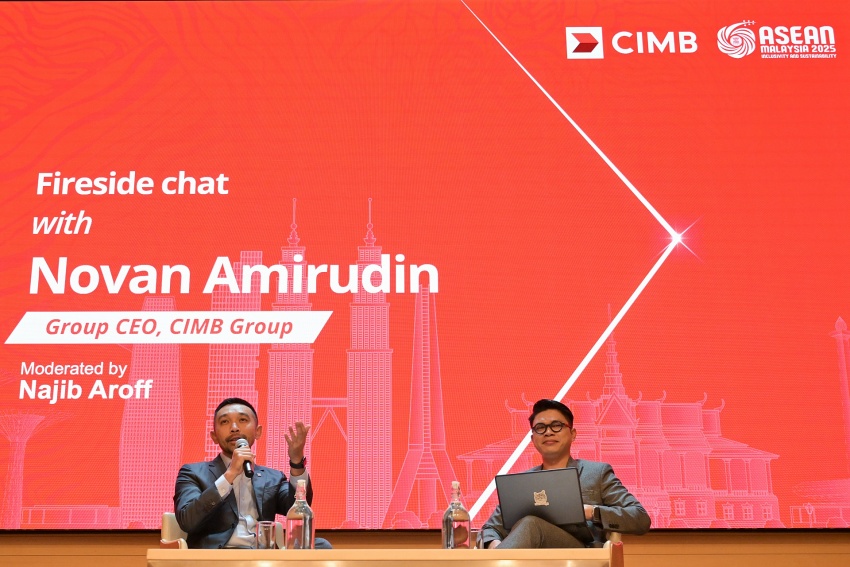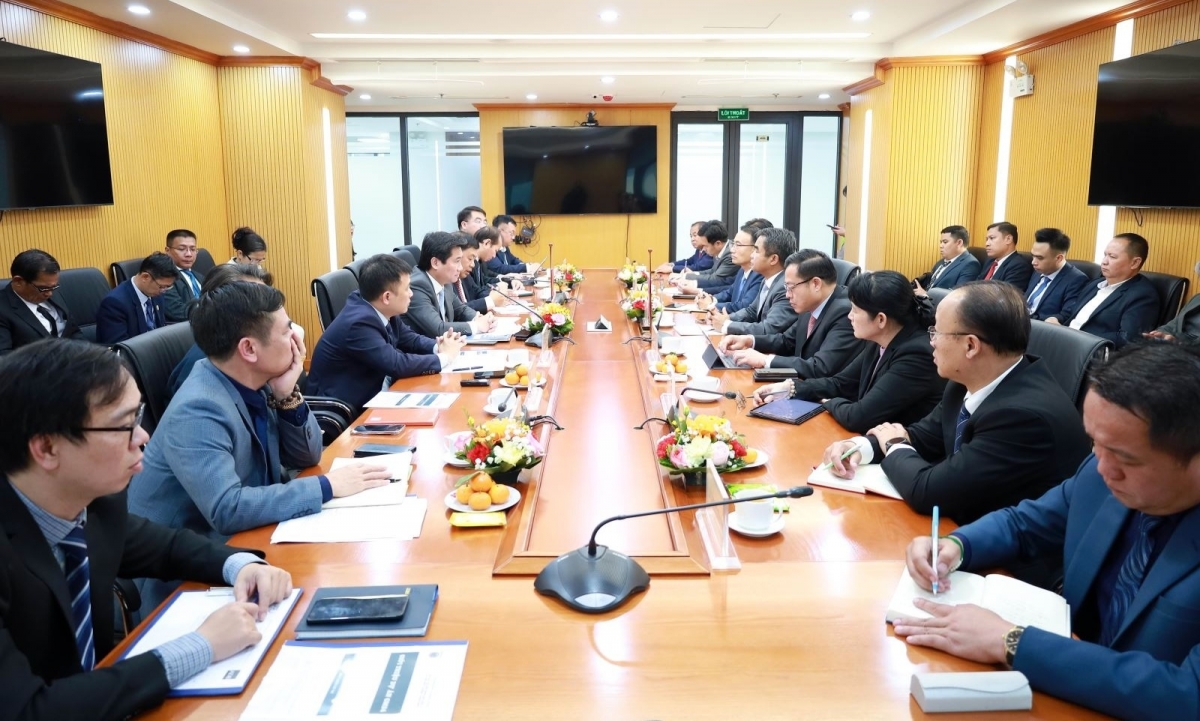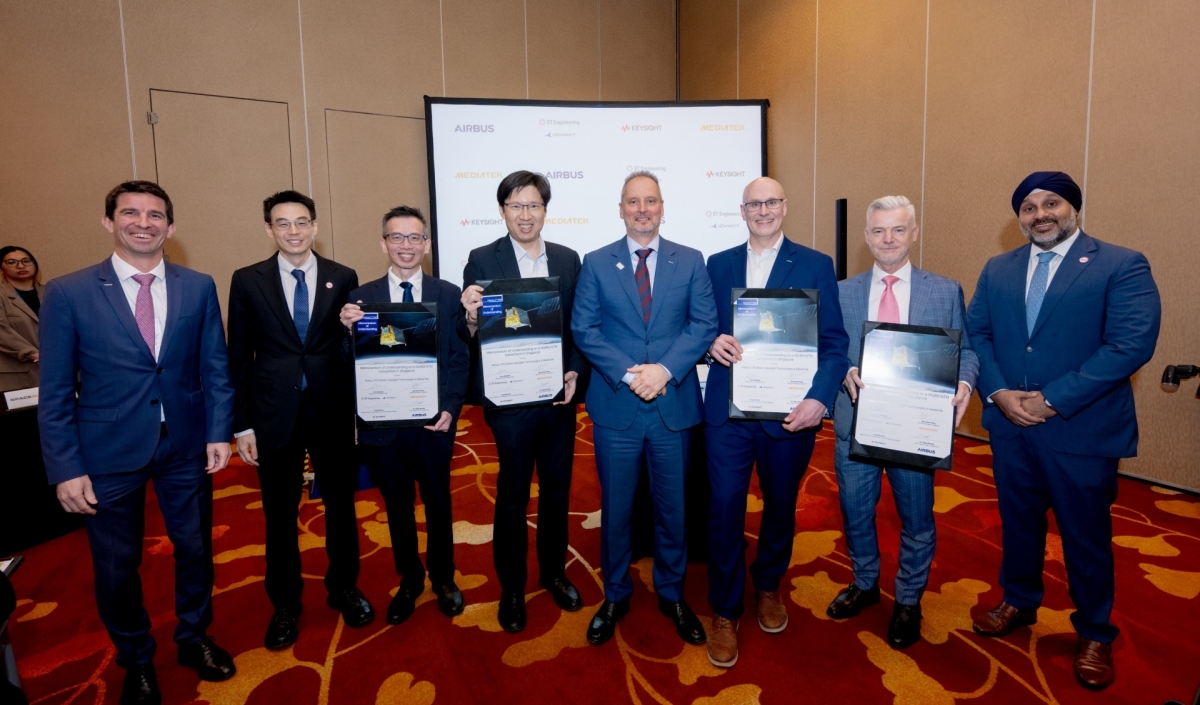INTERNATIONAL INVESTMENT
AND PORTAL
Against a backdrop of rising interest rate volatility, weakening dollar dominance, and fragmenting global supply chains, CIMB views ASEAN not merely as a consumer and production base, but as a competitive platform for scalable innovation, cross-border talent, and environmental, social, and governance (ESG)-driven growth.
 Group CEO Novan Amirudin speaks on accelerating momentum, digital reinvention, and sustainable leadership across ASEAN
Group CEO Novan Amirudin speaks on accelerating momentum, digital reinvention, and sustainable leadership across ASEAN
At the CIMB Group Media Day 2025 Advancing in ASEAN event, held in Kuala Lumpur on July 21, Novan Amirudin, CEO of CIMB Group, said, “Vietnam and the Philippines has been extremely important to us. We started digital banking in Vietnam and the Philippines five to six years ago with a small capital allocation, around 1-2 per cent but today, they shape how we operate across the group.”
He added, “In Vietnam, we’ve developed a mobile-first model that’s not just scalable but deeply integrated with customer behaviour. We’re not building branches, we’re building ecosystems.”
In the Philippines, where CIMB has grown to eight million users, six million acquired via e-commerce tie-ups the group has validated through its partnership-led approach to growth. “We learned that embedding financial services into digital platforms outpaces traditional models. These lessons now guide our expansion even in mature markets like Malaysia and Indonesia,” Novan added.
Vietnam’s strategic role goes beyond digital scale. It is where CIMB is refining its AI deployment for risk analytics, fraud detection, and client servicing. “We use AI to reduce multistep processes to just a few, improving speed and resilience across our operations,” Novan noted.
Lawrence Loh, co-CEO of Group Commercial and Transaction Banking, emphasised the dual role as a growth engine and an innovation hub. “This is where we’re testing ESG-linked loan products, green supply chain financing, and digitised small- and medium-sized enterprise (SME) onboarding. The learning curve here is steep and invaluable.”
The country’s young, digitally native population, open regulatory environment, and accelerating green transition make it uniquely positioned. “Vietnam is where fintech maturity intersects with climate urgency. That’s where CIMB wants to lead,” Loh said.

Panel discussion: CIMB at the Forefront of ASEAN
Beyond digital transformation, sustainability has emerged as a central pillar of CIMB’s ASEAN strategy. From an initial MYR30 billion target, the bank has raised its ESG financing commitment first to MYR100 billion, and most recently to an ambitious MYR300 billion (approximately $63 billion) by 2030.
“We didn’t jump on ESG for awards or public relations,” Novan said. “We did it because it’s good business sense. If we lend to a company that becomes non-compliant with ESG standards and loses access to global supply chains, we’re left with exposure. So helping clients transition is a risk management imperative.”
He added, “Our ambitious sustainable finance target, which is three times higher than our previous commitment, is anchored on our purpose of advancing customers and society. As one of ASEAN’s leading banks, we are directing capital towards responsible businesses and activities that reduce emissions, protect ecosystems, and generate meaningful social outcomes to ensure no one is left behind.”
Recognising the complexity of ESG compliance, Novan noted: “We understand the many challenges our clients face, from mandatory reporting requirements to managing climate, nature, and human rights risks. Our role is to help them navigate these, while opening doors to new business opportunities.”
In its July press release, CIMB announced plans to expand its sustainable finance capabilities in support of national and regional priorities including the ASEAN Power Grid, Malaysia’s National Energy Transition Roadmap, and the Johor-Singapore Special Economic Zone.
The group aims to work closely with clients to adopt responsible business practices, while mitigating the impact of potential carbon taxes and electricity tariff hikes. Through sustainability advisory and innovative financial solutions such as transition finance, nature-based carbon instruments, and blended finance, CIMB seeks to enable long-term value creation while meeting the rising demand for environmentally and socially aligned financial services.
As part of its inclusive transition agenda, CIMB is also supporting SMEs in enhancing environmental performance and competitiveness. Under its GreenBizReady programme, the bank offers sustainability-linked financing and advisory to help businesses adopt greener practices, alongside preferential rates. Meanwhile, its SMEBizReady initiative approved over RM990 million in financing for nearly 500 SMEs in 2024 alone, enabling investments in green technologies, automation, and digital tools such as e-invoicing.
For individuals, CIMB is promoting sustainable lifestyles through special deals on responsible purchases and preferential financing for green homes and electric vehicles. These initiatives are designed to embed sustainability into daily decision-making and support the shift towards a low-carbon society.
The group is also intensifying efforts to uplift underserved communities, including the B40 segment, through financial literacy programmes, scam awareness campaigns, and micro-investment tools ensuring inclusive access to sustainable finance.
Chu Kok Wei, CEO of Group Wholesale Banking, observed that ESG-led demand is becoming mainstream across ASEAN. “We’re seeing growing interest in sustainable infrastructure, renewable energy financing, and transition solutions. The appetite is real and so is the business case,” he said.



















